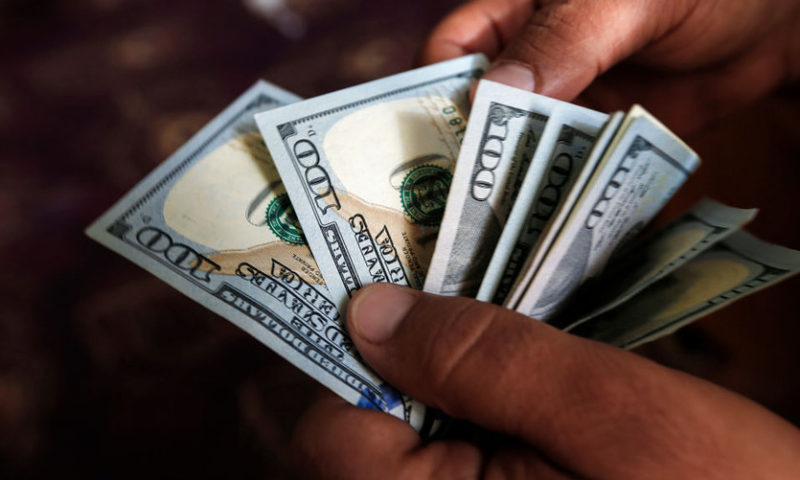The U.S. dollar regained ground and rallied versus its major rivals on Friday, reversing a downtrend that had dominated the past few days, as worries about a partial U.S. government shutdown weighed on financial markets.
While the ICE U.S. Dollar Index DXY, +0.58% jumped 0.7% to 96.955 in Friday trading, the popular gauge remains on track for a 0.5% drop for a week, according to FactSet.
Dollar trading was marked by a drop, driven in part by market expectations that the Federal Reserve would tone down its interest-rate estimates for 2019, which was confirmed on Wednesday. The central bank now only expects two rate hikes next year, versus three previously. Earlier on Friday, New York Fed President John Williams said the central bank was “listening” to weakness in the U.S. stock market as part of its data-dependent monetary policy.
On Thursday, House Republicans approved a funding package included funds for President Donald Trump’s Southern border wall, but the Senate is unlikely to approve the plan, leading to the worry about a partial government shutdown. Also late Thursday, Defense Secretary Jim Mattis said he would step down in February.
That said “the dollar hasn’t suffered that greatly in the past when the U.S. government was shut down — generally speaking, it fell in advance, then fell during the first few days of the shutdown, then recovered,” wrote Marshall Gittler, chief strategist at ACLS Global. At the same time, trading activity tends to be thin between Christmas and New Year’s so any damage done could be exacerbated.
“The difference between the looming shutdown and past ones however is the context. The US administration is in such chaos right now, with the shutdown mixed with trade mixed with questions about why Trump suddenly announced several measures that implement Russian policy (e.g. withdrawing from Syria and lifting sanctions on companies owned by Russian oligarch Oleg Deripaska) and why the Secretary of Defense resigned,” Gittler continued.
On the data front, third quarter gross domestic product growth was revised down to 3.4% from 3.5%, and November core inflation underperformed forecasts at 0.1%. On the upside, consumer sentiment improved to 98.3, beating both consensus estimates and the previous print.
In other major currencies the dollar’s strength dictated the direction of Friday trading. The euro EURUSD, -0.6814% slipped to $1.1373, compared with $1.1448 late Thursday, when the currency hit a one-month high. The British pound GBPUSD, -0.2212% last fetched $1.2638, down from $1.2658 late Thursday in New York.
The dollar edged higher against the Japanese yen USDJPY, -0.05% , which had strengthened on the back of a risk-off mood earlier in the week. The buck last bought ¥111.29, little changed in positive territory from Thursday.

